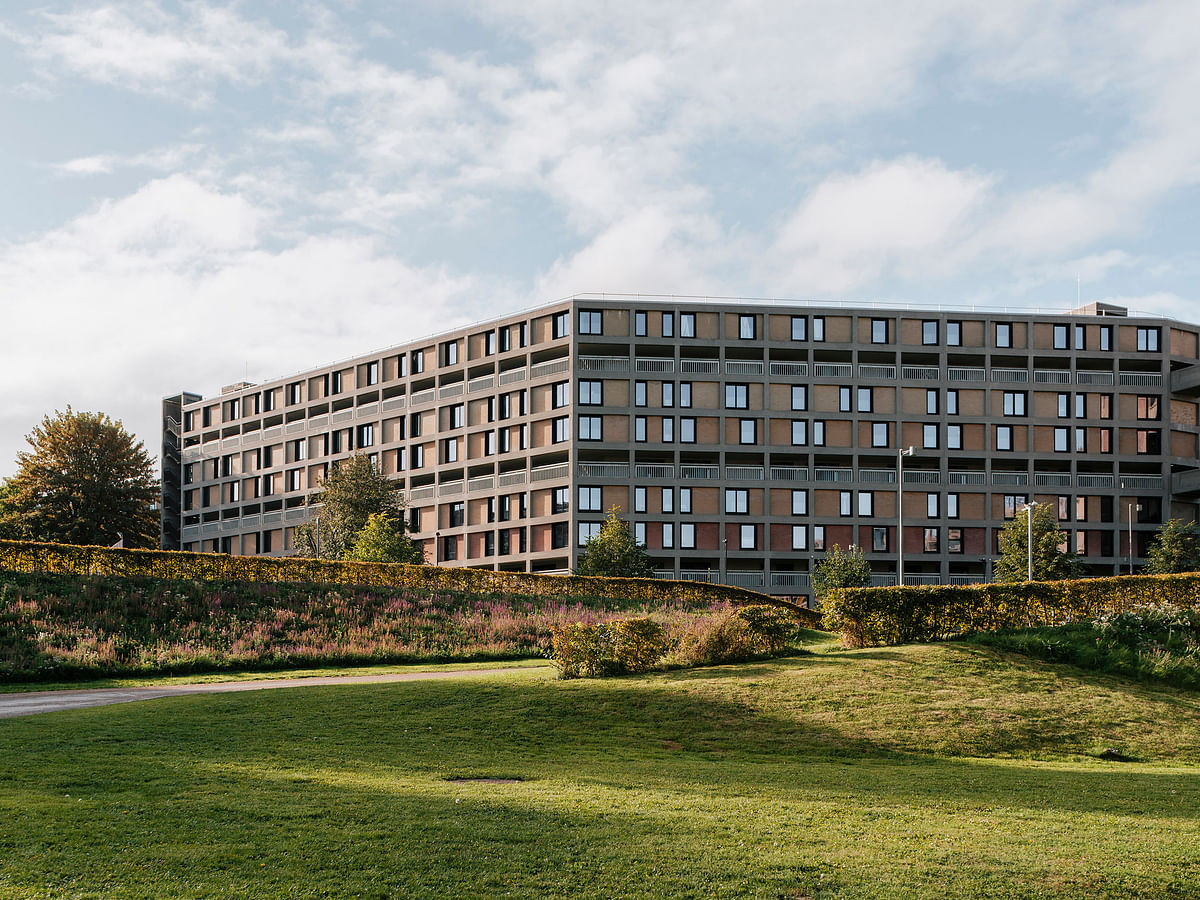RIBA reveals exciting collection of adaptive reuse projects shortlisted in the 2024 Reinvention Award
By Nathaniel Bahadursingh|
Friday, Sep 20, 2024

Related
The Royal Institute of British Architects (RIBA) has announced the shortlist for the second edition of the Reinvention Award. The award celebrates achievement in the creative reuse of buildings to improve their environmental, social, and economic sustainability. It aims to highlight the significance of retrofitting as a means to increase the longevity and energy efficiency of existing buildings without needing to demolish structures and build anew.
This year's shortlist recognizes four projects from across the United Kingdom, which includes the transformations of a ruined rural croft, a former Brutalist social housing scheme, an old flaxmill turned maltings, that is regarded as the world's first iron-frame building, and an outdated office and retail building. In addition to the Reinvention Award, these projects have also previously been acknowledged in the RIBA National Awards, the RIBA Stirling Prize, the RIBA London Awards, and the RIAS Awards.
“The importance of retrofitting and adaptive re-use cannot be overstated," said RIBA President, Muyiwa Oki. "Not least because most buildings that we will inhabit in the future have already been built. As architects, we are faced with the task of creatively responding to this issue, while balancing the needs of the local community and environment. The four shortlisted projects for this year’s Reinvention Award are all inspiring examples of how this can be achieved, with each carefully considering the context of their area, community and environmental needs. Diverse in their approach to reuse, these projects now set a benchmark for future retrofit endeavors.”
Look below to learn more about to each project.
Croft 3 by fardaa (Argyll and Bute)


Project description/jury comments: "A ruined rural croft on the Isle of Mull has been modestly yet expertly converted, expanding a busy local restaurant and providing a valuable community space, while meeting the stringent regulations of a National Scenic Area."
Park Hill Phase 2 by Mikhail Riches (Sheffield)


Project description/jury comments: "The second phase of an ongoing regeneration of Europe’s largest listed structure which sits on a prominent hillside overlooking Sheffield City Centre. Internal spaces are modernised through open plan designs and the addition of balconies, while thermal imaging has allowed sustainability experts to improve energy efficiency."
Shrewsbury Flaxmill Maltings by Feilden Clegg Bradley Studios (West Midlands)


Project description/jury comments: "A full refurbishment of a hugely important historic structure has turned the world’s first iron-frame building, nicknamed the ‘grandparent of skyscrapers’ into a new leisure destination with a visitor centre and cafe that embraces its industrial heritage."
The Parcels Building by Grafton Architects (London)


Project description/jury comments: "An outdated and unsuitable 1957 office and retail building has been transformed into a vibrant, sustainable centre for modern workspace and retail. The new façade brings depth and rhythm whilst cleverly negotiating the contrasting scale and character of Oxford Street and Duke Street."

Share
0 Comments
Comment as :